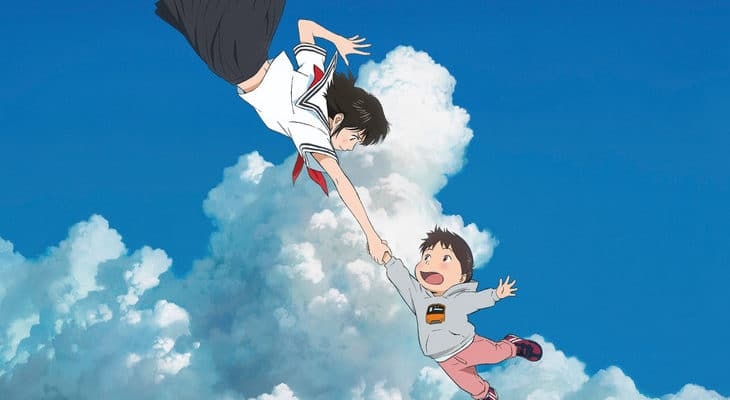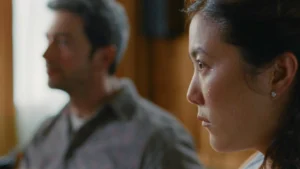
Filmmaker Mamoru Hosoda, over the years, has evolved into a fine force to reckon with in the anime genre (Wolf Children, Summer Wars). With enterprises like Studio Ghibli (founded by Hosoda’s mentor Hayao Miyazaki) spearheading nothing short of a revolution, Japanese animation, in general, has set a cutting-edge benchmark for the rest of the world to follow. At this juncture, when Hosoda brings out his latest feature Mirai, it is not uncommon to have expectations. One that narrates the familiar story of an elder child’s frustration once the new-born arrives in the family, the film is more about manifesting a well-known story in a manner that is edgy and innovative.
Pretty straight-forward in what it wants to communicate, Mirai is quick to introduce us to its setting. There is a new mother, a baby (after whom the film is named), and a father who is struggling with household chores. There is also a peculiarly designed house and a pet dachshund, both of which form significant characters in a film that is nearly devoid of a concrete plot. The protagonist, however, is Mirai’s brother Kun who is the prototypical problem child that any parent in a similar scenario might have at home. Kun’s jealousy towards Mirai stems out of foreseeable patterns and soon we see the former enter several episodes of their family from the future as well as the past.
There are times when we feel these narrative drifts are way too sudden and there are also junctures where they drag on endlessly with a visible inability to design flow from one activity to another. I particularly had an issue with the way the screenplay assembles the appearances of Mirai from the future on various occasions in the film. The second and third acts, in particular, are not powerful enough to hold your attention even though the visual language remains topnotch throughout.
ALSO READ: ‘Spider-Man: Into the Spider-Verse’ review – serves insane amounts of fun
Mirai drops pace further when it switches to the present-day setting where Kun expresses the very same complaint to his parents. The tantrums remain more or less the same, as does the way the screenplay lets him travel in time. Nonetheless, Mirai catches momentum towards the final act which, singularly, is the finest pre-climactic segment I have come across in any film in 2018. The moment Kun enters the rail to Tokyo against his great grandfather’s advice till the last frame, the film is a finite proof of how magical can cinema be. It is tense, thrilling, and nail-biting and these are also instants where we tend to forget that the format is animation. The frame transitions are spectacular even by what we have already watched in first-rate Japanese 2D animation films from the past.
Having said that, one area where Mirai clearly lacks is that of emotional depth. It is a relatable family story with a very simplistic and universal lesson but nowhere in its run-time does it make you feel for anyone. It does enthrall you to bits in the aforementioned segment and is, overall, a very amusing and absorbing watch. Then again, what is a film on family values that doesn’t tug your heartstrings? I was quickly reminded of the contemporary classic My Neighbour Totoro – a film that emerged from a similar universe but also had the power to move us to tears. Mirai does salvage notably towards the end although one wishes how Kun’s parents could have some layers in their respective characterizations rather than their constant bickering around the sharing of household duties. Therefore, for the regular viewers – especially children – Mirai might be a superior watch, thanks to the tangled plot and the visual delight that it is. For the rest, the film ends up a simple voyage that is sweet enough but is also mildly disappointing.
Rating: ★★★

